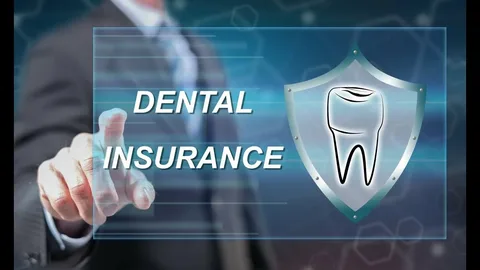The Role of Dental Insurance in Achieving a Radiant Smile: What You Need to Know
Table of Contents
- Introduction
- Understanding Dental Insurance Basics
- The Benefits of Having Dental Insurance
- The Impact of Dental Insurance on Oral Health
- Tips for Choosing the Right Dental Insurance
- How to Maximize the Use of Your Dental Insurance
- Real Stories: Positive Outcomes from Using Dental Insurance
- The Future of Dental Insurance: Trends and Innovations
Introduction
A bright, healthy smile can be more than just a confidence booster; it often reflects good oral and overall health. However, dental care can be expensive and quickly add up. Dental insurance plays a crucial role in maintaining that coveted radiant smile by keeping dental care costs manageable and encouraging regular visits to the dentist. Many individuals find themselves overwhelmed by the thought of choosing insurance plans, often sidelining the decision until faced with hefty dental bills. Comprehending the complexities of dental insurance is essential for making informed decisions, reducing expenses, and promoting sustained oral health. For those considering dental coverage options specifically in Texas, go now to explore more options. Dental insurance provides a practical way to manage the expenses of maintaining your oral health. It helps bridge the gap between necessary dental procedures and affordable healthcare costs, ensuring that financial barriers do not prevent you from receiving essential care.
Understanding Dental Insurance Basics
Dental insurance is akin to health insurance, designed specifically to cover a portion of expenses associated with oral healthcare. Familiarizing oneself with the different types of dental plans can demystify the process and aid in choosing the proper coverage. The main types of dental plans include:
- PPO (Preferred Provider Organization): This type of plan grants flexibility in selecting a wide array of dentists; however, opting for in-network providers yields better benefits. PPOs balance cost with freedom of choice, making them attractive to many seeking dental coverage.
- HMO (Health Maintenance Organization): HMOs require selecting a primary care dentist from a predefined network. While this setup limits the choice of dentists, it ensures reduced costs and benefits those comfortable with network restrictions.
- Indemnity Plans: These plans offer the benefit of visiting any dentist. However, this freedom comes at the cost of higher out-of-pocket expenses, which can be a consideration if budgeting is an issue.
The Benefits of Having Dental Insurance
Having dental insurance can significantly alleviate the financial burdens of dental care, offering numerous benefits that far outweigh the cost of premiums. Some key advantages include:
- Cost Savings: Most dental insurance plans fully cover routine preventative services such as cleanings, examinations, and essential X-rays. Insurance encourages individuals to maintain their oral health diligently by ensuring these foundational services are affordable.
- Coverage for Major Procedures:Dental insurance plans extend beyond routine cleanings; they frequently cover more comprehensive procedures such as fillings, crowns, and root canals. These procedures are costly, and having insurance can significantly reduce the financial impact.
- Emergency Services: Dental emergencies can occur when least expected, leading to unplanned expenses. Dental insurance can mitigate these financial surprises by lowering the out-of-pocket costs associated with emergency dental care.
The Impact of Dental Insurance on Oral Health
Regular dental check-ups are vital to maintaining oral health and are often encouraged by insurance benefits. Dental insurance promotes and enables individuals to schedule regular exams and cleanings, which are key to catching oral health issues early. Early detection leads to more straightforward and cost-effective treatments, reducing the need for invasive procedures. Furthermore, a study published by JAMA Network emphasizes that consistent dental visits are linked with early diagnosis and preventive care, resulting in reduced occurrence of oral diseases and contributing positively to overall health.
Tips for Choosing the Right Dental Insurance
Choosing the right dental insurance involves carefully assessing several factors to ensure it meets your individual or family needs. Consider the following tips:
- Assess Personal Needs: Evaluate your and your family’s dental health needs. Reflect on past dental issues, the frequency of visits, and any foreseeable procedures that might be needed. By identifying your coverage needs, you can choose a plan that accommodates your unique situation.
- Evaluate Coverage Options: Carefully review the plans available, focusing on what each covers and potential exclusions. Pay attention to any limitations around specialist care or specific treatments. Understanding plan benefits can prevent unexpected costs in cases where particular procedures aren’t covered.
- Consider Network Accessibility: A dental plan’s network size can directly affect accessibility and satisfaction with care received. Plans with extensive networks allow for more excellent choices in selecting a provider that meets your preferences and needs.
How to Maximize the Use of Your Dental Insurance
Effectively utilizing dental insurance involves a keen understanding of policy details and proactive health management. Consider these strategies:
- Understand Your Plan: Familiarity with your plan’s particulars, including the network, deductible, and annual benefit maximums, can optimize your dental care planning throughout the year.
- Regular Appointments: By using regular check-ups and cleanings covered within your plan, you maintain oral health and reduce additional costs associated with deferred care.
- Track Your Expenses: Keeping an accurate account of your dental care history and expenses facilitates efficient planning and utilization of benefits, ensuring maximum advantage.
Real Stories: Positive Outcomes from Using Dental Insurance
Sarah’s story exemplifies the positive financial and health outcomes of using dental insurance wisely. Facing significant dental work, she leveraged her insurance benefits to save thousands. Routine care, covered by her plan, minimized expenses and maintained her family’s oral health, preventing future costly treatments.
The Future of Dental Insurance: Trends and Innovations
The future of dental insurance is replete with promising trends enhancing its value, such as cost-reducing technologies, the broader accessibility of preventative services, and the development of digital interfaces for managing plans. Resources like the Dental Health Foundation provide insights into these innovations, reflecting a movement towards greater consumer empowerment and better oral health outcomes.



